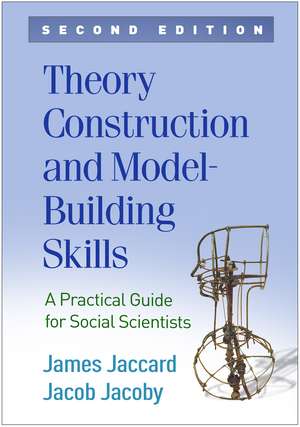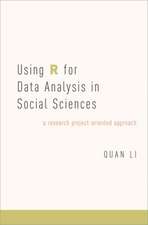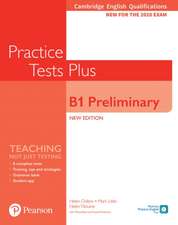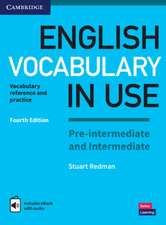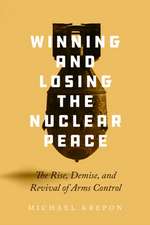Theory Construction and Model-Building Skills, Second Edition: A Practical Guide for Social Scientists: Methodology in the Social Sciences
Autor James Jaccard, Jacoby Jacob, Jacob Jacobyen Limba Engleză Paperback – 9 iun 2020
| Toate formatele și edițiile | Preț | Express |
|---|---|---|
| Paperback (1) | 429.80 lei 22-36 zile | +37.71 lei 5-11 zile |
| Guilford Publications – 9 iun 2020 | 429.80 lei 22-36 zile | +37.71 lei 5-11 zile |
| Hardback (1) | 685.36 lei 43-57 zile | |
| Guilford Publications – 17 apr 2020 | 685.36 lei 43-57 zile |
Din seria Methodology in the Social Sciences
-
 Preț: 371.24 lei
Preț: 371.24 lei - 8%
 Preț: 428.70 lei
Preț: 428.70 lei - 8%
 Preț: 530.61 lei
Preț: 530.61 lei -
 Preț: 374.10 lei
Preț: 374.10 lei - 8%
 Preț: 404.82 lei
Preț: 404.82 lei - 8%
 Preț: 462.78 lei
Preț: 462.78 lei -
 Preț: 394.79 lei
Preț: 394.79 lei - 15%
 Preț: 540.47 lei
Preț: 540.47 lei -
 Preț: 331.50 lei
Preț: 331.50 lei -
 Preț: 376.10 lei
Preț: 376.10 lei -
 Preț: 515.96 lei
Preț: 515.96 lei -
 Preț: 419.87 lei
Preț: 419.87 lei - 14%
 Preț: 339.29 lei
Preț: 339.29 lei - 23%
 Preț: 486.62 lei
Preț: 486.62 lei - 23%
 Preț: 490.41 lei
Preț: 490.41 lei - 21%
 Preț: 270.85 lei
Preț: 270.85 lei - 25%
 Preț: 329.07 lei
Preț: 329.07 lei - 20%
 Preț: 266.71 lei
Preț: 266.71 lei - 9%
 Preț: 468.18 lei
Preț: 468.18 lei
Preț: 429.80 lei
Preț vechi: 467.17 lei
-8% Nou
82.24€ • 86.10$ • 68.05£
Carte disponibilă
Livrare economică 17-31 martie
Livrare express 28 februarie-06 martie pentru 47.70 lei
Specificații
ISBN-10: 1462542433
Pagini: 522
Dimensiuni: 178 x 254 x 27 mm
Greutate: 0.93 kg
Ediția:2nd edition
Editura: Guilford Publications
Colecția Guilford Press
Seria Methodology in the Social Sciences
Cuprins
1. Introduction
2. The Nature of Understanding
3. Science as an Approach to Understanding
II. Core Processes
4. Creativity and the Generation of Ideas
5. Focusing Concepts
6. Thought Experiments for Variable Relationships
III. Frameworks for Theory Construction
7. Causal Models
8. Mathematical Modeling
9. Simulation as a Theory Development Method
10. Emergent Theory: Qualitative/Mixed Method Approaches
11. Emergent Theory: Quantitative Approaches
12. Historically Influential Systems of Thought
IV. Theory at the Level of Measurement
13. Theory and Measurement: General Frameworks
14. Types of Measurement Strategies
V. Concluding Issues
15. Theory Revision
16. Reading and Writing about Theories
17. Epilogue
Notă biografică
Jacob Jacoby, PhD, until his death in 2018, was Merchants Council Professor of Consumer Behavior at New York University’s Stern School of Business. He authored or edited several books and published over 160 articles in peer-reviewed social science and law journals. Dr. Jacoby was a Fellow of the American Psychological Association and a Fellow and past president of the Association for Consumer Research. His research on the factors that affect consumer decision making and behavior was honored by awards from the American Psychological Association, the American Marketing Association, the American Academy of Advertising, the Association for Consumer Research, and the Society for Consumer Psychology. He conducted research or consulted for dozens of Fortune 500 companies and other organizations in the United States and internationally. He also worked for federal agencies (including the U.S. Senate, Federal Trade Commission, and Food and Drug Administration) and testified in more than 100 cases heard in U.S. District Courts.
Recenzii
"This exceptional second edition focuses on how to ask and answer research questions in a way that will lead to sound conceptualizations and theory development. Written in an engaging, vivid, and crystal-clear manner, the book includes hands-on, tricks-of-the-trade approaches. Every page reflects the joy and satisfaction that come with fostering scientific creativity to address social and clinical science problems. The companion website has very detailed and informative resources. Filling a gap in its emphasis on how to do theory-driven science, this amazing, unique text has much to offer to students and new and seasoned researchers."--Wendy K. Silverman, PhD, ABPP, Alfred A. Messer Professor of Child Psychiatry and Director, Anxiety and Mood Disorders Program, Child Study Center, Yale University School of Medicine
"Essential reading for students in the social sciences, this book removes the mystery behind learning to think like a scientist. Jaccard and Jacoby teach the tricks of the trade--the cognitive maneuvers, representational strategies, and creativity heuristics--that any researcher can employ to build stronger, more informative, and testable theories. No other source covers the range of strategies for increasing the impact and relevance of theories. This book can serve as a stand-alone text in courses devoted to theory construction or as a supplemental text in more general courses on scientific and research methods. The new companion website for the second edition is invaluable; it presents useful exercises to help students build working knowledge of the concepts and strategies in the text."--Hart Blanton, PhD, Department of Communication, Texas A&M University
"How exciting! In this second edition, readers are going to find new concepts and methods for infusing theory into quantitative and qualitative research. Jaccard and Jacoby continue to take on the big ideas in social science research methods with clear exposition of complex topics and balanced guidance for new scholars.”--Sean Kelly, PhD, Department of Administrative and Policy Studies, University of Pittsburgh School of Education
"This outstanding book helps students understand the fundamentals of what a good theory is and how to use research to construct theories. It also shows how theory is used to guide the development of measures and interventions. It is a ‘must read’ for all doctoral students. Among the enhancements of the second edition is the great companion website, which offers resources and learning tools related to every chapter. I use this book in a doctoral-level class on theories and would recommend it to anyone who teaches theory to doctoral students.”--Cynthia G. S. Franklin, PhD, Associate Dean for Doctoral Education and Stiernberg/Spencer Family Professor in Mental Health, School of Social Work, The University of Texas at Austin
"At a time when science is often misunderstood if not outright denigrated by the lay public, it is essential that aspiring social scientists come to learn how theories should be formulated, tested, and revised. As a complement to textbooks focused on research methods and statistics, this beautifully written book on how to construct and evaluate theories--better than any other I’ve seen--will equip students and young scientists for this very purpose."--Saul Kassin, PhD, Distinguished Professor of Psychology, John Jay College of Criminal Justice, City University of New York-
Descriere
This accessible, hands-on text has now been revised and updated, with expanded coverage of topics including how theory may emerge from exploratory data analysis. The book prepares graduate students, new researchers, and even seasoned investigators to develop their own theories and build on existing ones. Concrete strategies are provided to help readers generate ideas, define constructs, and think through relationships and processes that link constructs. Compelling examples from multiple disciplines illustrate the use of quantitative, qualitative, and mixed methods orientations to theory construction. The text also offers practical advice for writing effectively about theories in papers and grant applications. Readers learn by doing via application and concept exercises, demonstration boxes, and practical guidelines. The extensive companion website includes PowerPoint slides of all of the book's figures, primers on advanced topics, video demonstrations, supplemental exercises, and other resources.
New to This Edition
*Emergent theory is now covered in mixed methods as well as qualitative approaches, plus in a new chapter on exploratory quantitative methods that can help generate new theory through data mining.
*Chapter on whether and how to revise a theory when faced with disconfirmatory data.
*Two chapters on the theoretical underpinnings of measurement practices.
*New or expanded discussions of what constitutes a theoretical contribution, conceptual logic models, thought experiments, and more.
Pedagogical Features
*Application and concept exercises in every chapter.
*Lists of key terms and engaging topical boxes.
*Annotated suggestions for further reading.
*New companion website with rich resources for students and instructors.
*Chapters stand on their own and can be used in any order.
